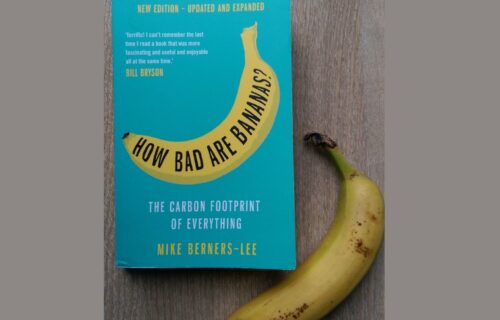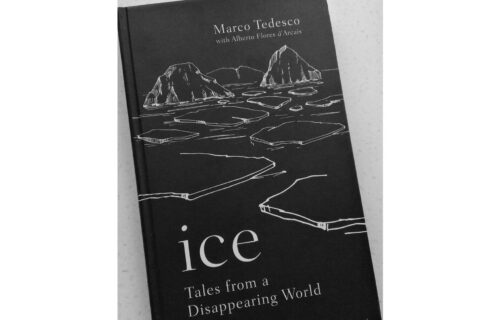
An interview with a sharing expert – Benita Matofska!
Benita Matofska says she saves £20,000 a year through sharing. She does a bit more than just share her stuff though, she also recently founded Compare and Share – a comparison website where you can search for people’s rooms, homes or cars to rent originally listed on various different websites. She lives in the same town as me and I just had to get in touch and find out more. She very kindly agreed to meet with me and let me interview her. I had a few questions prepared for her, but her story was so interesting that mainly I just listened and took notes.
an impact, create a difference and do something good in the world, so she left TV and went to work in the charity sector for a year. She worked for Enterprise
UK where her role was Head of Global Entrepreneurship (GE). During her time in this role she was invited to present at One Young World Congress which took
place in London in 2010 – an event all about giving young people a voice. She ended up presenting alongside Desmond Tutu and Bob Geldoff and felt incredibly inspired by her experience. In that moment she decided the
next thing she would do would be about making a big positive change in the
world.
I asked what sparked her interest in the sharing economy?
couldn’t get it out of her head. Benita didn’t know what she was going to do, but she
knew it would be do with sharing. Her
friends weren’t sure what she was doing. Her dad said where’s the money in that.
Interestingly now we know the sharing economy was recently valued at $15 million globally and is predicted to rise $335 billion dollars by 2025!
morning she woke up and decided that one of the key problems with the world is that there is a shortage of sharing. She became excited about the possibilities this presented and felt that the situation could be fixed as each of us having unlimited potential to share.
Benita told me how her interest in sharing led to her setting up a not for profit organisation.
On Jan 17th 2011 The People Who Share (read more here) came into being. Benita set it up as a not for profit campaign to help build a sharing economy. It’s mission is to educate, raise awareness and help people discover the sharing economy.
the Brighton Festival Fringe in May 2011, which was held in the Brighton Youth Centre on
Edward Street. They had a giant clothes
swap, had a big art share, had a big picnic, had a sharing market area which
was all the local sharing services that existed at the time in Brighton so
people could sign up for sharing goods, car share, seed swapping, skills
exchanges, time banks. There were musicians who came and shared their time and
their talents, skills exchanges – young people teaching old people to
skate. That was a great success. They continued putting on those kinds of events and did a number of those.
National and then Global Sharing Day
Sharing Day. She decided to do it 6 weeks
before the day, she had no money and only a few people helping. People told her she was mad – she didn’t have the resources and how on earth was she going to do that? Benita said what is the worse that can happen and gave it a go. On the 20th June 2012 it happened and it went
viral! People were tweeting from the Ukraine, the Phillipines and all over the world wanting their own national sharing day. So this led to her running a global sharing day on November 14th 2012. You can see her talking about this day in the video below.
2013 and they had 3.65 million people sharing food. There was a big launch event with
Caroline Lucas (Green MP for Brighton) at the House of Commons who was very supportive.
I asked Benita to tell me about Compare and Share
In January 17th 2013 Compare and Share
was officially born – (it coincindentally shares the same birthday as The People Who Share). It is a social business and a for profit
company. They have ambitions to become the next big tech brand and their vision is
to open up the sharing economy a bit like Ebay opened up the secondhand goods
market – they want to make it discoverable for everybody.
series of options to travel from Brighton to Bristol and so on. At the end of 2013 they launched accommodation and now give access
to over 1.2 million properties via a network of affiliate partners e.g.
houseshare.
Benita explained the opportunities that have arisen from Compare and Share.
started to happen is that businesses would come and ask them to provide
consultancy or give talks – in London in June 2013 Benita presented at Le Web and the
whole theme was on the sharing economy. Following that she was contacted by someone
from Macmillan Cancer Support because they wanted to build a peer to peer task
sharing platform to connect volunteers to run errands for people living with
cancer e.g. someone needs the shopping doing, laundry doing etc. They worked
collaboratively with Macmillian on a year long pilot project goteamup.org.uk. It
started out just in Brighton and Hove, but they have now been scaling it up across East and West Sussex and she is sure it will go further afield. Other companies have approached them as well.
‘Business has changed forever’
Benita feels that business has changed forever now that people can trade directly
with other people using technology. She thinks that in order for businesses to future proof themselves they need to find ways to be part of the sharing economy. Companies the world over are starting to look at different
ways of getting involved and one way corporations can get into this space is by buying. Zip Car was acquired by Avis in 2013. BMW have invested in Just Park and
they also have something called Drive Now – all different forms of car clubs,
most of the major car companies like Peugeot or Daimler have all invested in
car sharing in some form. Benita feels there is a massive shift
in how we are leading our lives and that people are choosing to access rather than own
goods.
Benita’s take on why we should share
As you can tell Benita is an incredibly passionate key player in the sharing economy. To find out more you can watch her Tedx Brighton Talk on the sharing economy below.
I wanted to know how she managed to save herself £20,000 a year through sharing and asked her how she did it. Benita replied as follows:
- She
stopped buying new things and everything is preloved. - She does regular monthly clothes swaps at home. She has been doing them for
about 20 years – something she did even when buying designer clothes. - For holidays they do house swaps – one example was when they did a houseswap in
Italy to a beautiful restored farm house which would have cost them £3500 euros a week. It was in acres of
land and didn’t cost her anything. - Childcare – she couldn’t be a working mum if not for the swaps
that she does. On some days friends look after her kids after school and on others she looks after theirs. She feels really happy with this set up knowing her kids enjoy going to their friends after school. - She organised a street
party on Global sharing day. Before she did it she barely knew any of her neighbours, but she says after doing it she never looked back – people smile at her, say hello and it is now a very friendly street. From this other things have developed. They now have adhoc tool sharing in the street. - She uses a book swap platform – Read It Swap It (find out more here)
- She has rented out a room in her home





